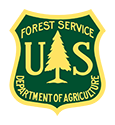AGU Sessions of Interest
The following is a relevant pre-meeting Ocean Observatories Initiative (OOI)-run workshop to address using Carbon Cycle data. It is not necessary to be registered for AGU to attend the meeting.
Title: Advancing Ocean Carbon Science: OOI SUGR Meeting on Data Quality and Best Practices
Date: Sunday, December 8th Time: 11am - 2pm ET
Agenda: The meeting will start with brief introductions, followed by three informative 20-minute presentations on topics related to ocean carbon science and data quality. After each of the presentations, there will be open discussions to explore the ideas shared. The next part of the meeting will focus on potential updates to the GOOS-Endorsed Best Practices document, where participants will discuss integrating recent developments and best practices. Finally, a demonstration of data explorer will showcase its application in enhancing data quality assessments and research. The meeting will conclude with a summary and discussion of next steps.
The following are sessions at AGU Fall Meeting 2024 that are related to Carbon Cycle Science.
For NACP-specific suggestions, visit the NACP website.
A066: Constraining Greenhouse Gas Exchange Processes Using Remote Sensing and In Situ Observations
A104: Light-Absorbing Carbon Aerosols: Observations, Models, Processes, and Impacts
A113: New Developments in Urban Greenhouse Gas Emissions Quantification
A122: Remote sensing of CH4 and CO2 from Space: The Expanding Observing System
A130: Terrestrial Biosphere-Atmosphere Interactions and Atmospheric Chemistry
A142: Understanding Land-Atmosphere Interactions: The Role of Surface Fluxes, Boundary Layer Processes, and the Atmosphere
B003: Advances in land carbon cycle modeling
B004: Advances in measurements, synthesis, analysis and modeling of greenhouse gas fluxes from natural ecosystems
B005: Advances in Modeling of Terrestrial Ecosystem Carbon and Water Fluxes
B008: Advances in Understanding and Constraining Uncertainties in the Terrestrial Carbon Cycle
B009: Advances in Understanding and Predicting Forest Demography and Carbon in a Changing World
B011: Advances in Understanding Water-Energy-Carbon Interactions
B013: Advances on Investigating Nutrient Cycling in Terrestrial Ecosystems (INCyTE) across Observations, Experiments and Models
B014: Advancing Environmental Monitoring through Near-Surface Imaging Technologies: Capabilities, Applications, and Future Directions
B016: Advancing Soil Carbon Predictions: From Micro to Global Scale
B019: Beyond Ice: NASA’s ICESat-2 spaceborne lidar mission for land and vegetation applications
B020: Biogeochemical and Microbial Processes across the Urban Terrestrial-Aquatic Continuum
B021: Biogeochemical Cycles of Carbon, Oxygen, Nitrogen, Phosphorus, Sulfur, and Silicon in Contemporary Earth Systems
B023: Building a More Complete Representation of Methane Dynamics Across Earth’s Ecosystems
B024: Carbon Allocation Dynamics: From Plant to Ecosystem Scale
B025: Carbon-Climate Interactions in the Methane Cycle
B026: C-FARMing - the Next Frontier for Science and Society
B027: Carbon inputs from wastewater treatment plants to aquatic ecosystems
B028: Carbon Monitoring Systems Research and Applications (Libby)
B033: Coastal Wetland Carbon and Nitrogen Cycles: Recent Advances in Measurements, Modeling, and Syntheses
B034: Consequences of drought and heat stress for terrestrial vegetation: from physiology to global feedbacks
B035: Contributions of CENTURY/DayCent Models to Biogeochemistry and Current Challenges
B036: Coupling Remote Sensing with Artificial Intelligence and Physics-Based Modeling to Improve Spatial-Temporal Prediction of SOC Stocks
B039: Drivers of forest carbon losses and effective interventions to preserve carbon in forests worldwide
B042: Ecology-Climate Connections Through Carbon, Water, and Energy Interactions
B045: Enhanced Weathering for Soil-Based Carbon Dioxide Removal: Potential and Challenges
B047: Exploring Methane Dynamics in Terrestrial and Aquatic Ecosystems via Advanced Bottom-Up, Top-down and AI/ML Modeling
B048: Forest Ecophysiology: Forest Physiological and Ecological Processes from Molecules to Ecosystems
B051: GHGs, VOCs, and the Dynamics of Environmental Parameters in Tropical Wetlands
B053: Hyperspectral Remote Sensing and Machine Learning for Precision Agriculture
B055: The Role of Fire in the Earth System: Understanding Drivers, Feedbacks, and Interactions with the Land, Atmosphere, and Society
B056: Impacts and Feedback of Phenological Changes in the Earth System
B057: Informing Terrestrial Biosphere Modeling by Integrating Diverse Observational Benchmarks
B059: Intersections of Ecology, Hydrology, and Climatology in Earth’s Drylands
B060: Land Biogeochemical Cycling Under Global Environmental Change: Patterns, Drivers, and Mechanisms
B066: Methane Emission Feedbacks from Natural Systems: Reducing Uncertainties from the Tropics to the Poles
B069: Missing Carbon: Mechanisms Controlling Carbon Transfer Across the Terrestrial-Aquatic Interface
B070: Model Data Integration to Advance Understanding of Wetland Greenhouse Gas Emissions: From Site to Global Scales
B071: Multi-Greenhouse Gas Flux Assessments to Characterize Regional to Global Scale Anthropogenic and Biogenic Emissions from Terrestrial, Oceanic and Aquatic Systems
B073: Novel Paradigms, Processes, and Emergenc Behavior in Terrestrial Ecosystem Modeling
B076: Outcomes of Research Conducted on Long Term Agricultural Research Sites
B079: Plant Ecophysiology to Power the Next-Generation Earth System Modeling
B081: Quantifying Soil Organic Carbon for Global Change: Inspiring a Community-based Data and Model Integration Effort
B082: Quantifying the Climate Impact of Freshwater Minerotrophic Wetlands
B088: Science-Based Carbon Dioxide Removal (CDR) Strategies that Incorporate Monitoring Measurements, Reporting, and Verification (MMRV)
B093: Soils in the Anthropocene, as a solution to climate change? Insights from empirical, modeling and big data studies
B094: Soils in the Anthropocene: Carbon and Nutrient Coupling in Terrestrial Agroecosystems
B095: Soils in the Anthropocene: Cross-scale Mechanisms of Stabilization and Change
B096: Soils in the Anthropocene: Exploring Divergent Frameworks for Improved Understanding of Organic Matter Formation and Stability
B097: Soils in the Anthropocene: The Effect of Plant Communities and Their Microbial Associations on Soil Biogeochemistry
B100: Sun-induced Chlorophyll Fluorescence: Measurements, Modeling and Applications from Field, Airborne, and Satellite Platforms
B101: Surface-Atmosphere Interaction: Flux measurements for Real-World Impact
B102: Surface-Atmosphere Interaction: Intersections between Eddy Covariance and Remote Sensing
B103: Surface-Atmosphere Interactions: From Single Flux Measurements ot Integrated Syntheses
B104: That Doesn’t Look Right: Spikes, Outliers, and other oddities in GHG Chamber Measurements in the Age of Reproducible Science
B106: The Global Carbon Cycle and its Feedbacks with Anthropogenic Change
B107: The Global Methane Budget
B108: The Resilience and Vulnerability of Arctic and Boreal Ecosystems to Climate Change
B112: Tropical Forests Under a Changing Environment
B115: Understanding Land-Ocean Interactions through Atmospheric Teleconnections: Patterns, Mechanisms and Predictions on Perturbations to the Global Carbon Cycle
B117: Vegetation canopies: physiology, structure, function
B118: Vulnerability of Permafrost Carbon to Climate Change
C008: Changes to Subsurface Processes in Permafrost Soils due to Climate Change-Induced Thaw
EP015: Earth Observations to characterize extreme climate events and human impacts on the terrestrial carbon cycle
EP016: Earth Surface Processes and the Global Carbon Cycle
EP035: Predicting the Fate of River Deltas and Coastal Wetlands: Observations, Modeling, and Experimentation
EP040: Surface processes and carbon cycling in cold regions: observations, drivers, and impacts in a changing climate
GC004: Advancements in Climate Intervention Research Technologies, Policies and Practices: Opportunities and Issues
GC005: Advances in Enhanced Weathering for CO2 removal in (Sub-) Tropical Environments, Integrating MRV, Geochemical Modeling, and Life Cycle Analysis
GC006: Advancements in Remote Sensing and Artificial Intelligence for Soil Health Monitoring and Climate Smart Agriculture
GC014: Advances in monitoring and mitigation assessments of greenhouse (GHG) emissions and sinks for the land sector
GC022: Advancing Monitoring, Reporting, and Verification (MRV) of In-Situ, Ex-Situ, and Marine CO2 Mineralization-based Carbon Dioxide Removal (CDR)
GC029: Advancing Understanding of the Impacts of Land Use and Land Cover Changes in Climate Modeling
GC040: CO2 removal at scale: Science, technology, policy and market
GC048: Climate Intervention, Mitigation, Adaption, and Restoration: Assessing the Risks and Benefits of Using Earth System Models for Guidance on Climate Action
GC054: Connecting Science and Monitoring, Reporting and Verification (MRV) Development for Cross-Pathway Carbon Dioxide Removal (CDR) Technologies
GC057: Data-driven approaches to improved climate impact accounting for nature-based carbon removal
GC062: Direct and indirect linkages between greenhouse gases and air pollutants: monitoring, quantification, and management
GC067: Earth-Observation Based Methods To Monitor Forest Loss, Degradation and Growth
GC076: Forest cover dynamics, drivers, and impacts under diverse human activities and climate change
GC083: Implications of climate change for global agriculture - impacts, adaptation, mitigation
GC089: Large-Scale Carbon Dioxide Removal: Potentials, Considerations, and Challenges
GC096: Methane Mitigation - Novel Approaches to Reduce Methane Emissions and Remove Atmospheric Methane
GC097: Monitoring and measuring global impacts of livestock supply chains: environmental mitigation and ecosystem services on land
GC117: Observing, Modeling, and Predicting Greenhouse Gas Dynamics in Various Landscapes under Climate Change
GC123: Removing Technical Obstacles to Large-Scale Deployment of Geological Storage Systems
GC126: Risk analytics for a warming world
GC131: Scaling: Integrating field experiments, remote sensing, and modeling to understand terrestrial ecosystem responses to climate change
GC132: Scaling Nature-Based Climate Solutions
GC133: Scaling Potentials of Carbon Dioxide Removal Technologies: Approaches, Constraints and Challenges
GC141: Sustainable Agriculture and Climate Change: Towards agricultural decarbonization
GC145: Terrestrial biosphere-climate interactions: dynamics, impacts, and pathways to sustainability
GC146: Terrestrial enhanced rock weathering and downstream processes in soils, rivers and oceans
GC150: The Impact of Decarbonization on the Global Nitrogen Cycle
GC153: The source and fate of carbon transferred along the hydrological pathways
GC158: Unlocking the Potential of Carbon Capture and Storage Value Chain for a Sustainable Net-Zero Future
GC160: Urban Climate and Vegetation Feedbacks from the Local to Regional Scales
GC165: World on Fire: Understanding Fire Impacts on Climate, Ecosystem Structure, and Biogeochemical Cycles
H002: Advancement in Watershed Modeling: Agricultural Systems, Nutrient Balance, Carbon Cycling and Regulatory Science
H035: An Integrated Community Approach to Modeling, Observations, and Prediction of the Water Energy and Carbon Cycles Across Climate Timescales over the CONUS
H064: Experimental and Modeling Developments for Advancing Geological CO2 Storage
H126: Subsurface Processes for Energy Production and Storage, Carbon Mitigation and Waste Disposal
H148: Water and Society: Decarbonization and Sustainability Strategies for Water Systems
OS003: Advances in Understanding Nutrient Cycles and the Biological Pump in the Western Pacific Under Past, Present, and Future Climates
OS004: Advancing our Understanding of Ocean Carbon and Air-Sea Carbon Flux
OS018: Emerging Perspectives on Dissolved Organic Carbon Sources, Age, and Reactivity in the Deep Ocean
OS027: Modeling Approaches in Support of Ocean-based CDR Research
OS029: Natural Gas Hydrate Systems: Occurrence and Dynamic Behavior
OS032: Physics Informed and Data-Driven Machine Learning methods for modeling marine geoscience processes
OS036: The Impact of Climate Change and Human Activities on Carbon Sequestration in Coastal Wetlands and Strategies for Carbon Sink Enhancement
S018: Geologic Carbon Storage
SY037: Navigating Uncertainty: Assessing and Communicating Risk in Marine Carbon Dioxide Removal Research, Development, and Deployment
PP010: Carbonate Sediments through Time: Processes of Deposition and Diagenesis
PP011: Climate of the Common Era
PP017: Hyperthermals through Time: Decoding Climate Change, Ocean Circulation, and Carbon Cycle Feedbacks
PP023: Organic material as Paleo-environmental Proxies in Terrestrial Carbonates
PP033: The Deglacial carbon cycle: reconciling greenhouse gas records with marine and terrestrial data
SY060: Whole-of-Society Approaches for Addressing the Climate Crisis at Scale, from National to Local
U013: Ocean Negative Carbon Emission Approaches for Mitigating Climate Change: Mechanisms, Practices and Governance
V027: The role of carbon in mantle, magmatic and hydrothermal processes




